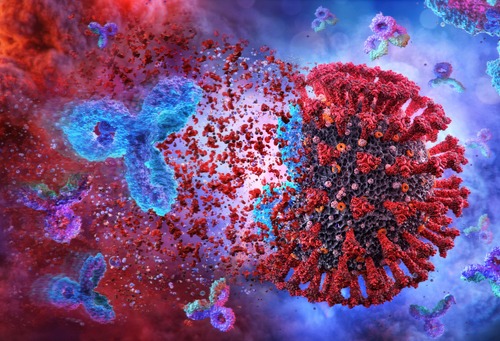
New research from the Washington University School of Medicine in St. Louis seemingly confirms scientists’ and health experts’ worst fear that all three of the prominent, fast-spreading variants of COVID-19 can resist vaccines and antibodies currently effective against their forebear.
Published in Nature Medicine, the results of the lab-based experiments determined that COVID-19 drugs and vaccines may become less effective as the new variants dominate the old virus. More antibodies could counter this, but presently the results held true for all three major new variants: those from South Africa, the U.K., and Brazil.
“We’re concerned that people whom we’d expect to have a protective level of antibodies because they have had COVID-19 or been vaccinated against it, might not be protected against the new variants,” said Dr. Michael Diamond, senior author and Herbert S. Gasser Professor of Medicine. “There’s wide variation in how much antibody a person produces in response to vaccination or natural infection. Some people produce very high levels, and they would still likely be protected against the new, worrisome variants. But some people, especially older and immunocompromised people, may not make such high levels of antibodies. If the level of antibody needed for protection goes up tenfold, as our data indicate it does, they may not have enough.”
In other words, those who most need protection may become the ones least likely to have it as the strains gain prominence. This is because the new strains threaten the focus of most existing COVID-19 vaccines: the spike protein, which the virus uses to latch onto and get inside cells. The three major new variants all carry multiple mutations in their spike genes.
“We don’t exactly know what the consequences of these new variants are going to be yet,” Diamond said. “Antibodies are not the only measure of protection; other elements of the immune system may be able to compensate for increased resistance to antibodies. That’s going to be determined over time, epidemiologically, as we see what happens as these variants spread.”
For their study, Diamond and his team tested the variants against antibodies in the blood of people who had either recovered from SARS-CoV-2 infection or been vaccinated against it. Antibodies were also tested in the blood of vaccinated mice, hamsters, and monkeys. While the UK variant could be neutralized with similar levels of antibodies as the original, the other two variants required anywhere from 3.5 to 10 times as many antibodies for neutralization. Tests of monoclonal antibodies were all over the map, from broadly effective to completely ineffective against the variants.




